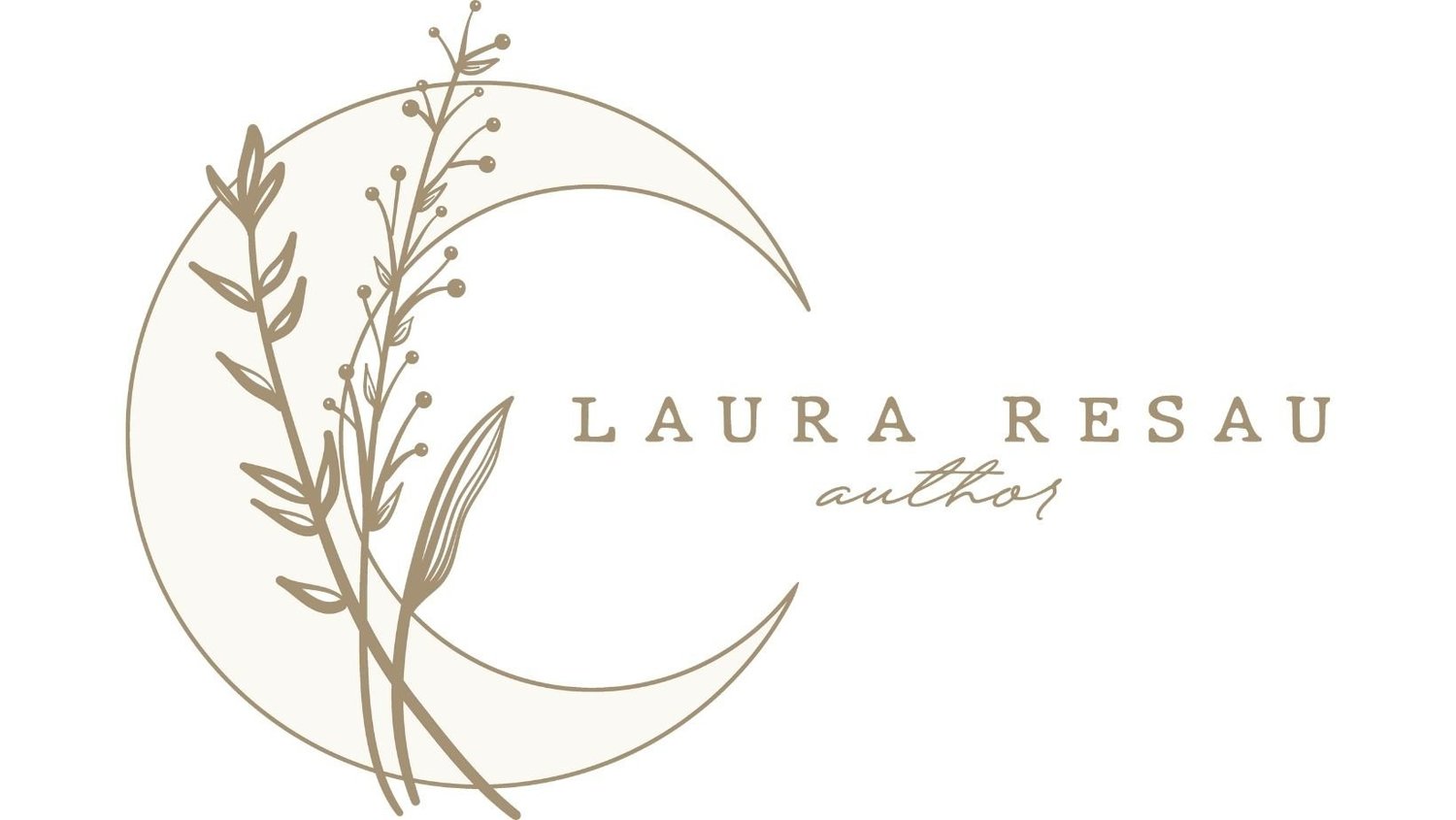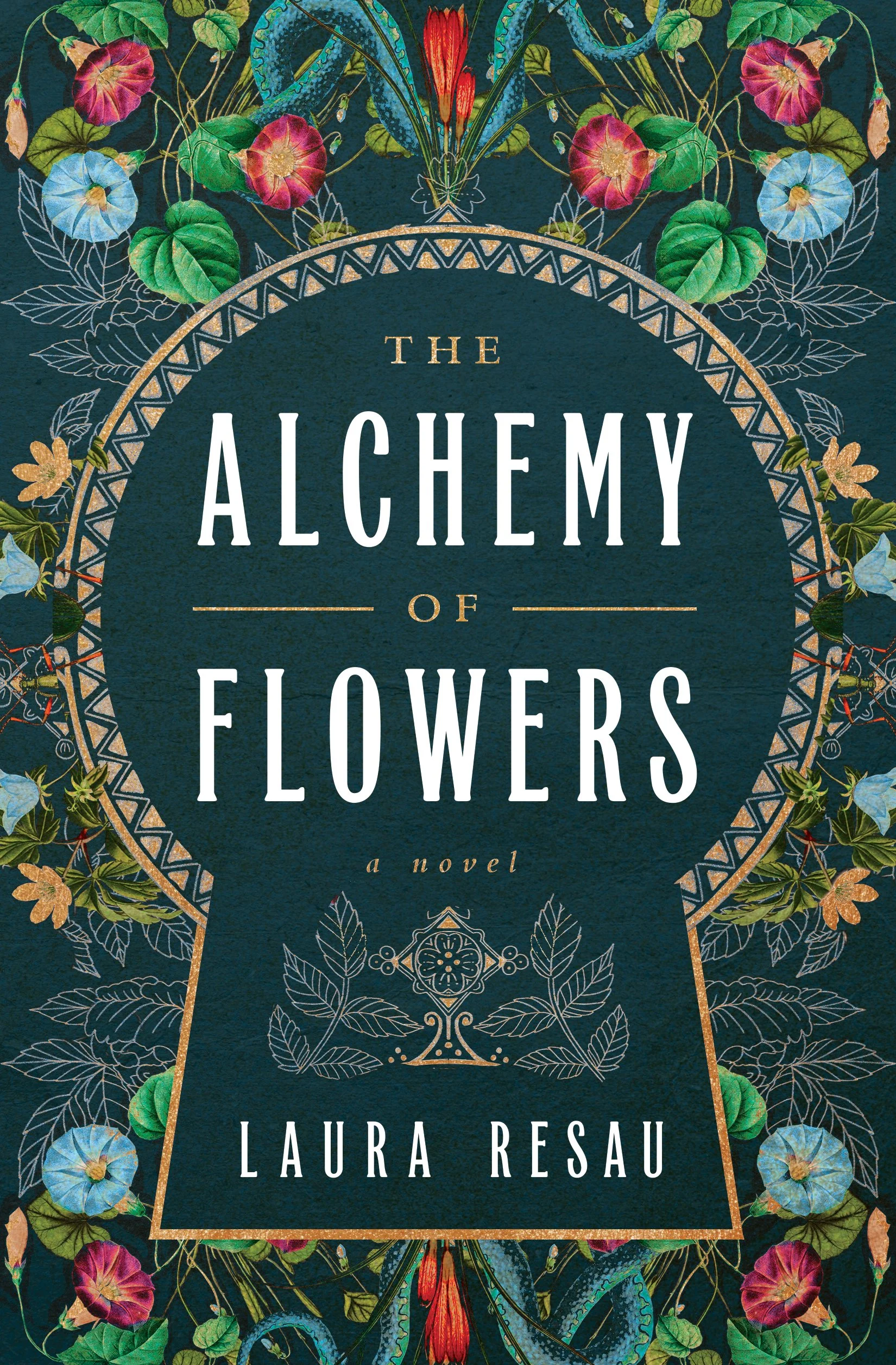Interview with Laura Resau
Inspiration for The Alchemy of Flowers
Tell us about your own experiences in the South of France!
I had the joy of living in Aix-en-Provence for my junior year abroad, and I still remain close to my wonderful French host family. I visit them as often as possible, and feel fortunate to bond with my French maman through food! She’s a truly magnificent cook—I especially adore her Provenҫal dishes—and some of the gourmet meals in the book were inspired by meals she prepared with lots of amour.
I’m also lucky to have a longtime best friend in France who is in the wine industry and read over my manuscript to suggest wine and meal pairings—so fun!
What inspired you to include healing and magical flowers in the book?
Over the pandemic, I became a bit obsessed with propagating my houseplants (now numbering one hundred!) and growing an edible and medicinal flower garden. I learned to make all kinds of herbal teas and potions and lotions with my plants, which partly inspired the main character, Eloise’s, work in the gardens.
I also drew on my time living as a teacher and anthropologist in rural Oaxaca, Mexico, where my Indigenous healer friends took me to forage medicinal herbs and flowers, showed me how to prepare them, and invited me to participate in rituals using sacred plants. These experiences helped me form special relationships with medicinal herbs and flowers, as Eloise does.
The castle gardens in the book are off-grid—no cell service, internet, electricity, plumbing… what inspired this aspect of the setting?
My husband and I built a tiny cabin in the Rocky Mountains on land we love, called Beagle Holler (after our beloved beagle, Wilma, who passed away in 2023.) We also renovated a 1960’s trailer (named Winnie, after my grandmother), and she stays there during the summers as a guest house. We love having weekend getaways to our little refuge—we use solar panels for power, stream water for washing, a woodstove for heat, and a handmade composting toilet.
One day, I was dealing with our composting toilet (basically, a glorified bucket in an IKEA hack!)—which turns merde into rich soil where wildflowers thrive—when I got the idea of the impossible task that sparks Eloise’s journey. I found the idea of transforming something unpleasant into something beautiful to be helpful to me in my own health struggles, and this metaphor particularly resonated with me. It’s such a joy to see gorgeous fireweed and yarrow springing up in the parts of the hillside fertilized by this “humanure”—it feels profoundly symbolic to me.
You’ve talked about how your own journey inspired this new novel for adults. Are you willing to share more about that?
The Alchemy of Flowers was inspired in part by my experiences of years of infertility, miscarriages, endometriosis (a painful and chronic reproductive condition associated with infertility), and ultimately, finding a different way to form a family. Like Eloise, when my infertility and miscarriages began, I was also working in the field of Early Childhood, spending my days with pregnant and post partum women and their babies and young children. And like her, I left the job largely because it was too emotionally painful. Her experiences with the roller coaster of infertility treatments were also drawn from my own life. Anyone who’s been through this—or is close to someone who has—knows how devastating this can be. Happily, though, adopting a child made my life complete, and on a deeper level, helped me transform the painful experiences into something beautiful and meaningful.
Can you talk a bit about how your academic background influences aspects of this book?
I have a Masters Degree in Cultural Anthropology with a concentration in Medical Anthropology. Before my infertility, in my mid-twenties, I did research with healers, midwives, and mothers of all ages in Indigenous communities of Oaxaca, Mexico, focusing on practices around childbirth. My curandera friends invited me to participate in healing rituals, including spiritual cleanings and divinations in the Mixtec and Mazatec traditions. (I spent two years working and living in a small town in Oaxaca as an English professor and anthropologist.) In the novel, we see some of these elements in Eloise’s backstory with her best friend from Oaxaca. In the book, overall, it felt important to me to include perspectives from other cultures and social groups, to show a bigger picture of reproductive issues.
How did your experiences working with immigrants and refugees influence the book?
I’ve spent many years working with immigrants and refugees as an English teacher and advocate, and these experiences also informed the story. As I mentioned, Eloise’s backstory involves a close friendship with a Mexican immigrant who is also experiencing infertility, and this, too, is inspired by my own real-life friendship.
Since I speak French as well as Spanish, I’ve been able to bond with Senegalese immigrants in my town, too. It’s a country that has always fascinated me, and I felt fortunate to also form a friendship with my consultant, a tour guide in Senegal. In my book, Eloise becomes close friends with a middle-aged Senegalese refugee named Mina, who fled to France as a teenage girl to escape an arranged marriage to an older man. After working with refugees and immigrants from around the world, I felt it was important to give a global context to the kinds of reproductive issues faces by women and girls around the world.
Living in the South of France, I appreciated the diverse cultures there and wanted it reflected in my book—Eloise’s other close friend, Bao, is from a Vietnamese-French immigrant family from Marseille. And the child, Sabine, has a Romani background, which was an opportunity to touch on the richness of this culture and the challenges they’ve faced.
What resources do you have for book clubs and readers who are curious to know more?
I’m always adding more info and extras to The Alchemy of Flowers page on my website. There are links to more interviews, as well as discussion questions, recipes, a playlist, and more! You can preorder/order the book here. And you can join The Garden, which gives you occasional updates about giveaways and other treats here. Merci!



